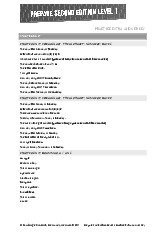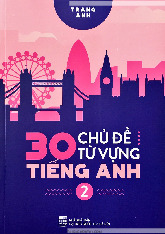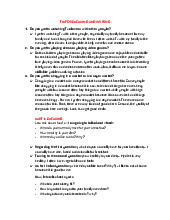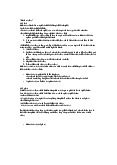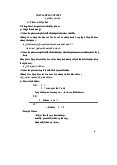














Preview text:
Question Paper for B1.1 I) Multiple Choice
1. How often ___you___to the gym? A: Did/go B:Are/going C: Do/go D: Have/gone
2: I’m nearly eighty, but I ___ any exercise. A: Don’t do B: Didn’t do C:Aren’t doing D: Not doing
3: Nazroo ____ with elephants at the moment. A: are working B: works C: is working D: is work
4: You ___ hold the ball when you play football. A: don’t have to B: mustn’t C: needn’t D: don’t need to
5: You ___ go to the football game, you can watch on TV. A: need B: mustn’t C: must D: don’t have to
6: I love ___ news about environment. A: to watching B: watch C: watching D: to be watch
7: Are you afraid of ___ to the dentist? A: to go B: go C: to be going D: going 8: My brother is ___ than me. A: high B: higher C: more higher D: highest
9: My phone is ___ ___ as your phone. A: more expensive B: as expensive C: most expensive D: expensive
10: Jack ___ a movie when his phone ___. A: was watching/ring B: watched/was ringing C: watches /rings D: was watching/rang
11: It ___ snowing while we ___ the mountain. A: started/climbed B: started/were climbing C:was starting/climbed D: was starting/were climbing
12: When he ___ we ___ a video game. A: arrived/played B: was arriving/were playing C: arrived/were playing D: was arriving/ played
13: Mercury is the closest planet to ___ Sun. A: the B: a C: an D: no article
14: When I got home, I saw ___ apple on ___ table. A: an/a B: the/the C: the/a D: an/the
15: There ___ people at the party, it was crowded. A: was many B: were much C: was much D: were many
16: It was ___ best holiday of my life. A: no article B: a C: an D: the
17: I ___ TV at eight o’clock last night. A: watch B: watching C: am watching D: was watching
18: Last year I went to Ha Noi, the weather ___ cold there. A: was B: were C: is D: are 19: A ___ is made of paper. A: phone B: pen C: dictionary D: car
20: Don’t ___ the electronic rubbish, we can use it again. A: take B: throw C: have D: make
21: I don’t recycle ___ glass A: much B: many C: some D: a few 22: Where is ___ White House? A: the B: a C: an D: no article
23: I want to go to restaurant, i have to ___ a taxi. A: do B: take C: make D: have
24: You can protect environment by not using ___ bag A: plastic B: metal C: wood D: paper
25: This exercise is difficult ___ A: to do B: doing C: do D: to doing
26: Why do you want ___ your job. A: to leaving B: to be leaving C: leave D: to leave
27: I’m 54 years old, he is younger than me, he is in his___ A: mid-fifties B: early fifties C: late fifties D: early sixties 28: I’m so happy ___ you A: to see B: see C: to seeing D: for see
29: I ___ my friends at 6 o’clock A: will meet B: will going to meet C: be going to meet D: am going to meet
30: This exercise is difficult, I ___ you. A: will help B: be going to help C: will be help D: will to help
31: It ___ me 8 hours to go to Ha Noi. A: takes B: haves C: make D: take
32: In this football match, the ___ will receive a gold medal. A: referee B: players C: winner D: goal keeper
33: ___ often occur during rush hours. A: Traffic jams B: Pollutions C: City centers D: fuel costs
34: I don’t like her because she is ___. A: patient B: impolite C: friendly D: positive
35: Hurry up or you will ___ the bus. A: miss B: take C: catch D: go
36: I ___ 8 hours a day using phone. A: take B: spend C: make D: have
37: I feel ___, I cant go to school. A: sick B: good C: great D: energetic 38: I ___ back in 5 minutes. A: am going to B: be C: will be D: to be
39: My friend is the most___ in the class, she always gets 10 marks on test. A: challenging B: intelligent C: kind D: patient
40: How is your baby, ___ he sleep well at night? A: is B: does C: do D: be II) Reading Comprehension
1) Read the article and choose the correct answer: THE MOUNTAINEER
As a child, Pasang Lhamu Sherpa Akita lived with her younger sister in Lukla, a
town in northeastern Nepal. Her parents died when she was young. As a teenager
she trained as a mountaineer. She worked as a mountain guide and she climbed
Mount Everest when she was only 22. In 2015, there was a terrible earthquake in
Nepal and many people didn't have homes or food, so Pasang helped them.
Nowadays she also works to improve education in Nepal and is famous for her
voluntary work as well as her mountaineering. THE CYCLIST
Marjan Sadequi was born in Afghanistan and grew up in the capital city of Kabul.
Her father was the national cycling coach for the men's team and, from very early
on in life, Marjan had an ambition to become a cyclist. Her father gave Marjan her
first bicycle when she was a teenager, and he soon saw how much Marjan loved
cycling. As a result, he built a new women's cycling team with his daughter and
ten other women. It wasn't easy to practise around the roads of Kabul but, in
2013, the team went to New Delhi and they had their first international
competition against other female cycling teams. They didn't win, but they
entered more races in Pakistan, Kazakhstan and South Korea and because of
Marjan and her team's achievements, more women are now cycling in Afghanistan.
41. Who is Pasang Lhamu Sherpa Akita, and what significant achievement did she accomplish at the age of 22?
a) A cyclist who won international competitions
b) A mountaineer who climbed Mount Everest at 22
c) A volunteer helping earthquake victims
d) An educator working to improve education in Afghanistan
42. Where did Marjan Sadequi grow up, and what was her father's role in her passion for cycling?
a) Lukla; he built her a cycling team
b) Kabul; he was the national cycling coach
c) New Delhi; he supported her international competitions
d) South Korea; he gave her the first bicycle
43. What event motivated Pasang Lhamu Sherpa Akita to help people in Nepal in 2015?
a) Winning a mountaineering competition b) Her parents' death c) Climbing Mount Everest
d) Becoming a famous mountaineer
44. How did Marjan Sadequi contribute to the promotion of women's cycling in Afghanistan?
a) She built a new men's cycling team.
b) She won international competitions in cycling.
c) Her father established a women's cycling team.
d) She worked as a cycling coach for men.
45. In which countries did Marjan Sadequi and her women's cycling team participate in races?
a) Nepal, Afghanistan, and India
b) Pakistan, Kazakhstan, and South Korea
c) Lukla, Kabul, and New Delhi
d) South Korea, Nepal, and Pakistan
2) Read the article and choose the correct answer:
The most usual way to entertain friends at home is to invite them for a meal,
either in the evening or at lunchtime on a Sunday. In smaller communities, for
example a country village, people also invite each other for a drink before a meal,
for morning coffee or afternoon tea. When guests are invited for a meal, they
often sit and chat while they have a drink before the meal, and coffee is usually
served afterwards. Several friends are sometimes invited at once to make a small
party. These parties are almost always informal. Formal occasions, when written
invitations are sent out and people dress formally, rarely take place in people's
homes, although they did in the past.
46. What is the most common way to entertain friends at home?
a. Formal events with written invitations b. Afternoon tea gatherings
c. Inviting for morning coffee
d. Sending out multiple invitations for a small party
47. In smaller communities, what additional social invitations are mentioned? a. Only evening meals
b. Morning coffee and afternoon tea c. Formal dress occasions
d. Exclusively Sunday lunch gatherings
48. What typically happens when guests are invited for a meal? a. They dress formally
b. They engage in formal discussions
c. They chat while having a drink before the meal
d. They leave immediately after the meal
49. How are informal parties described in the passage? a. Rare and exclusive
b. Always accompanied by formal attire
c. Often involving several friends
d. Typically held in formal venues
50. According to the passage, when did formal occasions with written invitations take place in people's homes? a. Frequently in the present b. Rarely in the past c. Rarely in the present d. Frequently in the past III) Writing
A) Choose the correct answers A, B, C or D: 51: I/be/going to/meet/her/6PM
A. I am going to meet her at 6PM.
B. I will going to meet her at 6PM. C. I am going to meet her 6PM.
D. I will going to meet her 6PM. 52: I/be/not/good/swim. A. I am not good to swimming. B. I’m not good at swim. C. I don’t good at swimming. D. I’m not good at swimming. 53:How many/pen/you/want/buy?
A. How many pens you want to buy?
B. How many pen do you want to buy?
C. How many pens do you want buy?
D. How many pens do you want to buy? 54:Be/you/drive/the party/now?
A. Are you driving to the party now?
B. Is you driving to the party now?
C. Are you drive to the party now?
D. Do you drive to the party now?
55: Yesterday/I/be/watch TV/9PM.
A. Yesterday I be watching TV 9PM.
B. Yesterday I am watching TV at 9PM.
C. Yesterday I was watching TV at 9PM.
D. Yesterday I was watching TV 9PM.
B) Write a paragraph: What is a famous transportation in your home town?
_____________________________________________________________________
_____________________________________________________________________
_____________________________________________________________________
_____________________________________________________________________
_____________________________________________________________________
_____________________________________________________________________
_____________________________________________________________________
_____________________________________________________________________
_____________________________________________________________________
_____________________________________________________________________
